Many people believe that giving up land animals and
continuing to eat fish is doing a good thing. But these facts prove eating “only
fish is not the solution.
Fish Are Smart
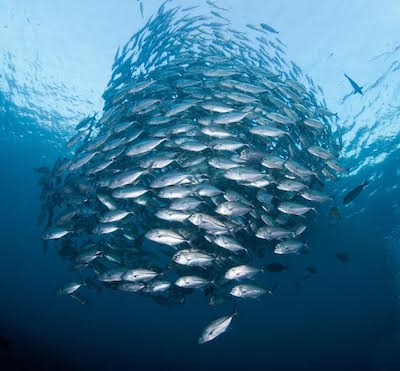
Fish are intelligent beings. A study published on Vox.com
detailed a multitude of fish abilities, including their
ability to “learn from each other, recognize other fish they’ve spent time
with previously, know their place within fish social hierarchies, and remember
complex spatial maps of their surroundings.”
Overfishing Is Killing Our Oceans
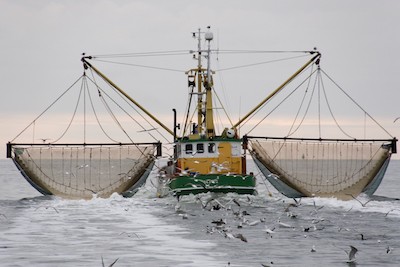
Overfishing is depleting
our oceans of various species on a daily basis. According to the Food and Agriculture Organization of the United Nations,
about 32 percent of the world’s fish stocks are being exploited beyond
sustainability. That’s right:
Almost one-third of all the ocean’s fisheries are being overfished.
Fish Farming Is Cruel and Disgusting
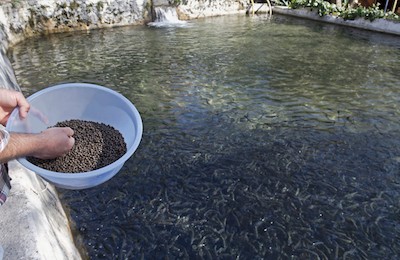
Factory-farmed fish
endure crowded, waste-filled pools and lives of misery. These
pools are so filthy that many
fish suffer from sea lice, a deadly parasite that feeds on blood, skin, and
slime.
As if that weren’t terrible enough, fish at factory farms
are deprived of everything natural. A study published in 2016 noted that
factory-farmed salmon become “so
depressed they give up on life.
Fish Meat Is Filthy
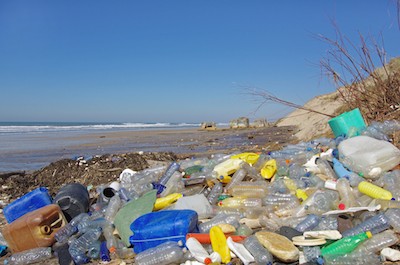
According to MIT researchers, mercury levels in tuna
are 10 million times higher than in seawater,
with human activities since the Industrial Revolution to blame. Just
recently, Swedish scientists found that rising temperatures from climate change
could boost mercury levels in fish by up to seven times the current rates.
What’s more, fish meat has plastic in it. Researchers at the
UC Davis School of Veterinary Medicine found that a whopping 25 percent of fish tested had plastic in their guts.
Additionally, researchers from the University of Ghent in Belgium recently
found that seafood eaters ingest
up to 11,000 tiny pieces of plastic every year and dozens of particles
become embedded in tissues.
Fish Isn’t a Health Food
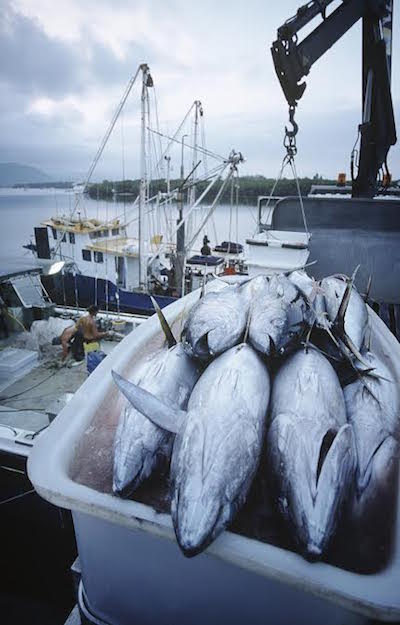
Somehow the recommendation to eat less meat has translated
into a message to eat fish. But just like chicken and pork, fish and other
seafood are devoid of fiber and loaded with saturated fat and cholesterol.
What about omega-3? Fortunately, you don’t need to eat fish
to obtain omega-3 fats. Instead, you can get them where the fish do—from plants.
Eating Fish Kills
Other Marine Life
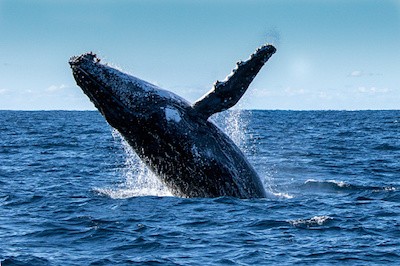
Countless unwanted animals are swept up in massive trawling
nets along with targeted species. These animals are known as “bycatch. According
to The National Journal, an estimated
20 percent of all fish caught by commercial fisheries is bycatch. This
means animals like sea turtles, seals,
small
whales, porpoises, dolphins, and sharks
are caught and often die.
Seafood Workers Are Horribly Exploited
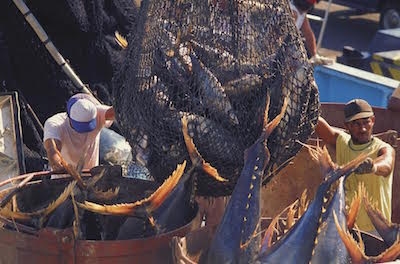
The seafood industry is horrible not only for fish, the
environment, and your health, but also for workers. Reports have shown
that in the U.S. and elsewhere, seafood workers are exploited and
often enslaved. The National Guestworker Alliance, a group representing
temporary workers in the U.S., claims that “the exploitative conditions that
shackle migrant workers in America are the equivalent of forced labor. Whether
animal or human, no one deserves to be taken advantage of.
Fish Feel Pain
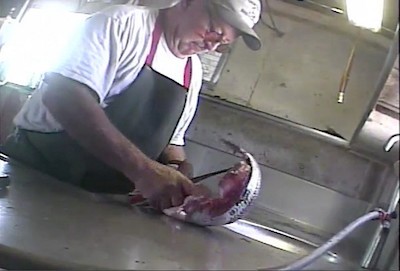
Fish are feeling animals. In fact, scientists worldwide have
noted time and again that fish experience pain in much the same way
as land animals. Fish are even comparable to dogs, cats, and other animals in
the way they feel pleasure.
Sadly, the seafood industry treats fish as mere objects. In
2011 Mercy For Animals conducted an undercover investigation at a fish
slaughter facility that exposed fish being skinned alive. As the fish gasped
for oxygen, their skin was ripped off with pliers. They thrashed and fought for
their lives to escape the workers’ knives.
Watch.
The best thing we can do to remove our support from the
cruel fishing industry is to leave fish off our plates and switch to a
compassionate vegan diet. Click here to learn more. And check this out for cruelty-free, sea-inspired recipes.